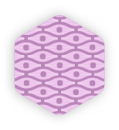Congenital muscular dystrophies
Neuromuscular
What is a neuromuscular disease?
Neuromuscular disease is a term that defines a wide variety of diseases. They result in muscle wasting (atrophy), muscle pains and weakness. They are usually rare diseases, affecting both children and adults.
Based on the location of the disease source, neuromuscular diseases can affect:
- The muscle cells structure or functionality (this group includes muscular dystrophies and myopathies.
- The junction between the neuron and the muscle, interfering with the transmission of signals between the neuron and the muscle (this group includes myasthenic syndromes).
- The nerve itself, affecting the transmission of signals from the brain and brain stem to the muscle itself (e.g. neuropathies)
Neuromuscular diseases are either genetically inherited (hereditary) or acquired.
As a group, most of them result (at different degrees of severity) in muscle weakness and interference with daily life activities.
Other symptoms may include:
- Muscle aches and pains, cramps and spasms
- Muscle stiffness
- Sensory alterations
- Joint contractions
- Fatigue (defined as weakness after physical activity)
- Difficulties with breathing
- Heart symptoms
Last modified
04 February 2020